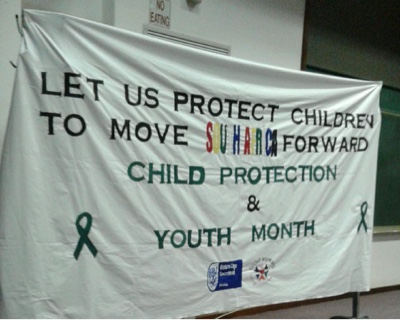ANA creates a cooperative learning opportunity for me and two schools
The build up to the ANA assessments
During this past week all South African learners sat for the Annual National Assessments(ANA) standardized tests. What was interesting is how parents, teachers and just about everybody became involved in some way with the preparation for the ANA tests.
There is definitely a mixed reaction to ANA on the ground.
Parents, friends and members in my family complained about the high standards of the sample tests that that they had to help their children with
"CAPS is difficult," said an exasperated Dad.
"CAPS is difficult," said an exasperated Dad.
“Goodness,” exclaimed one such friend, “I can’t recall ever having to answer such questions when I was in the Foundation phase”.
A medical doctor said she was flabbergasted when she could not answer sample questions that her nephew at primary school had to practice answering. ANA even dominated the facebook statuses posted by my cyber friends. One teacher celebrated the performance of her Grade 1 class in the ANA tests, adding a smiley face and exclamation marks to show her pleasure. Another principal commented that his teachers thought the Mathematics papers were good.
Using ANA Memorandum discussions to build leadership and teacher capacity
ANA created a wonderful professional development opportunity. I decided to participate in the discussions of the marking schemes of the ANA tests for the Grades 1,2, 4 and 5 at two schools: Steenberg Primary and Hillwood Primary school. Besides being able to bond with the colleagues teaching at these levels, the mediation of the memoranda schemes allowed us to deepen the assessors’ consistent, uniform application of judgement when assessing learners’ work.
 |
| Memorandum discussions in progress at Hillwood Primary School . Top: Grade 1 group. Bottom group: Grade 2 educators |
I was amused with the bantering that ensued when I had to choose my first examination script. I was even given the script of one Grade one learner who only made squiggles on the entire paper. Another colleague gave me a Maths answer sheet of an Afrikaans Home language Grade four learner, with the teacher remarking that “ you have to experience marking the script of a learner whose home language is different to yours.”
As we waded through the question papers and the memoranda, colleagues engaged in lively discussions to motivate or outmotivate learners’ responses to questions. The ANA test questions and the mark allocation also came under scrutiny during the process.There we were, Heads of school, heads of department and teachers, modelling how the various curriculum leaders could participate in assessment processes and see how quality assurance practices can be deepened.
 |
| The Grade 5 teacher markers at Hillwood Primary School |
Action learning is superior to generic workshops
I thoroughly enjoyed the engagements with the staffs. In most cases such action learning interactions are richer and have deeper value for the parties concerned. Not only do we learn more about teaching and assessment practices, but we also strengthen professional relationships during these sessions.



Comments
Post a Comment